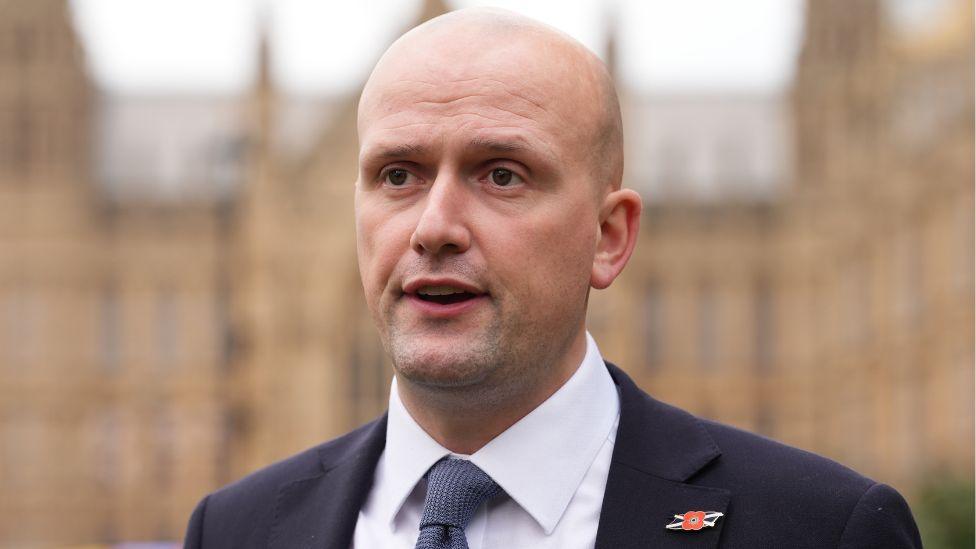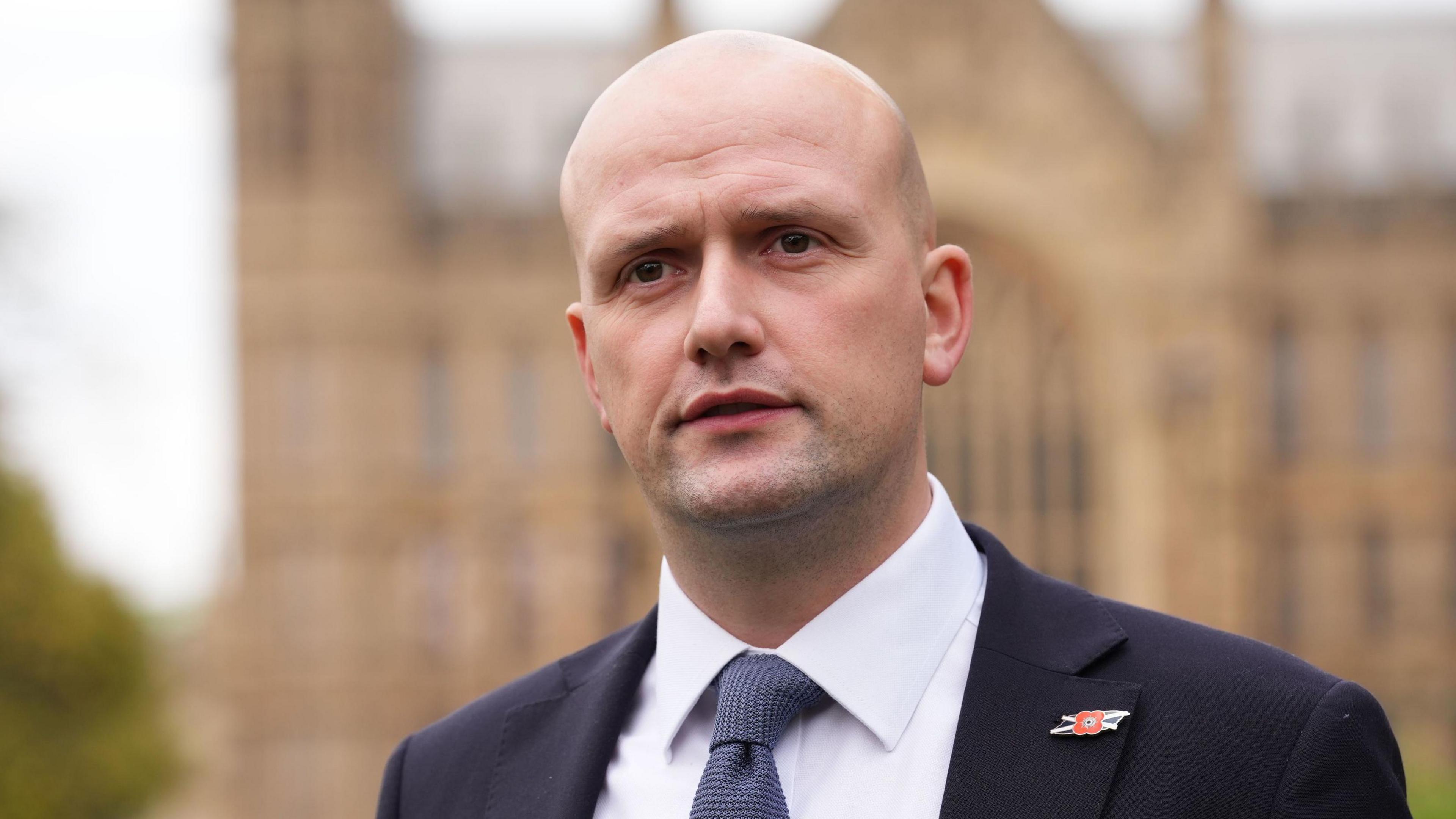Government backs bid to bar dual mandates for MSPs

The SNP's Westminster leader Stephen Flynn sparked a debate after announcing his intention to run for a seat at Holyrood
- Published
The Scottish government is to back a move to bar MSPs from also sitting as MPs or members of the House of Lords ahead of the 2026 Holyrood election.
A debate about so-called dual mandates gained momentum after the SNP's Westminster leader Stephen Flynn announced that he wanted to sit in both parliaments.
MSPs will consider amendments to an election reform bill next week amid calls for a change in the law.
The government says it will support MSPs being disqualified from also sitting in the Commons or Lords, but wants to hold a public consultation first.
Parliamentary Business Minister Jamie Hepburn said he aimed to introduce regulations in 2025, ahead of the following year's Holyrood vote.
The government is due to publish a public consultation on the changes in January.
Hepburn said the government had "been clear that it is supportive of ending the practice of dual mandates where MSPs are also able to be MPs or peers".
He said he had worked closely with Conservative MSP Graham Simpson, who has led calls for a ban.
Hepburn added: "I hope that parliament will support these amendments as a good solution to ensure the issue of dual mandates can be considered properly and regulations informed fully, whilst ensuring the changes can take place ahead of the 2026 election."
'Privilege and a challenge'
Greens MSP Ross Greer, who supported Simpson's amendment, said: "It is impossible to be an MSP in Edinburgh and an MP in London at the same time and to do a good job in both of those roles.
"Serving Scotland is a privilege and a challenge. It requires elected representatives who are completely dedicated to serving their constituents, not their personal career ambitions."
Simpson has submitted a further amendment that could see councillors disqualified from also being MSPs.
Flynn was forced to back down after announcing his intention to stand for the SNP in the 2026 Holyrood election, and to hold on to his Westminster seat until the next general election.
He said he had sought a dual mandate "for the right reasons" but had got the call "wrong".
Dozens of MSPs have had a dual mandate, either as a member of the House of Lords, the House of Commons or as a councillor - including 20 this term, external.

These amendments barring dual mandates have been penned by a Conservative MSP, in consultation with an SNP minister, and were formally seconded by a Green MSP.
So it seems fairly certain they will pass with overwhelming support in parliament.
Dual mandates have not always been so controversial at Holyrood; John Swinney sat concurrently as an MSP and MP, in line with a number of politicians who made the shift from Westminster to Edinburgh in 1999.
Alex Salmond later managed to combine jobs in both parliaments with a third at Bute House, remaining MP for his first three years as first minister of Scotland.
But attitudes have hardened as Holyrood and its expanding set of powers settled into the political landscape, and came to a head when Stephen Flynn announced he wanted to seek a dual mandate a matter of weeks after being re-elected as an MP.
What the move means for aspiring MSPs in other parliaments is unclear, though. The amendments tabled would "disqualify" members of the Commons or Lords from sitting in the Scottish Parliament, but the exact details will be filled in by regulations later.
So it may ultimately remain up to parties to decide whether MPs have to step down and trigger a by-election immediately after winning a seat in Holyrood, or if – as the SNP stipulated in 2021 – they must resign from their "other" seat in advance and run an all-or-nothing campaign with no safety net.
That is what could be pivotal in the decision-making of MPs like Stephen Flynn.
- Published18 November 2024

- Published22 November 2024
